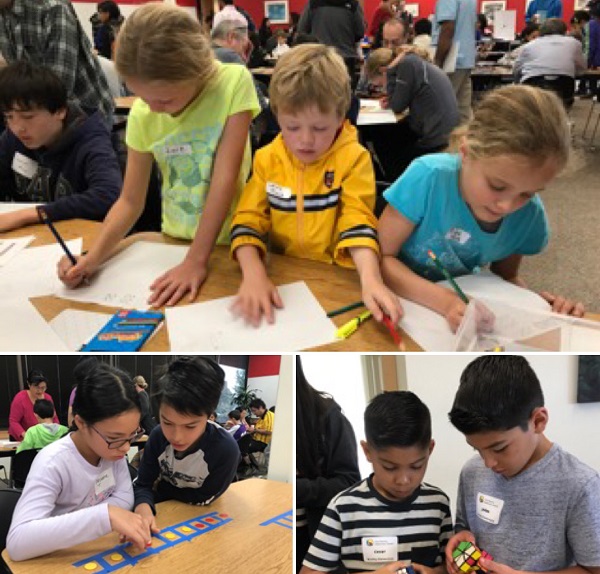
Check out the many ways math can be fun at this debut math festival
From solving logic programs and puzzles to making magic squares out of a deck of cards, 200 Pittsburgh kids are invited to a free math party.
The Ellis School in Shadyside will host the region’s first Julia Robinson Mathematics Festival on April 15. There, kids will celebrate math in a fun, collaborative and exploratory setting.
The program, which includes non-competitive mathematical activities, challenges and puzzles, is open to kids from kindergarten age through 12th graders.
“This is a chance to come have fun around math,” says Cara LaRoche, math department chairperson at The Ellis School.
Move quickly to sign up. Registration is filling fast.
The school’s math department learned about the festival via Twitter and spent the past year planning.
“We love the idea that it’s named after a female mathematician being that we’re an all-girls school,” LaRoche says. “We liked the idea of just coming together and engaging in fun creative problem-solving in a collaborative way.”
The festival goes against the stereotype of a mathematician sitting alone in a room, solving problems by themselves, LaRoche. It’s about collaborating and solving problems together.
“Sharing ideas and coming together to accomplish something is important,” she says.
Unlike most math competitions, the festival provides an open time frame in which to solve problems.
“Having that open-ended time frame and not being constrained by a time limit relieves some pressure,” LaRoche says. “Just because you’re not fast at solving math problems doesn’t mean you’re not good at it.”
Nancy Blachman, founder of the Julia Robinson Mathematics Festival, says these were all reasons why she started the program, which is now hosted at between 50 to 100 schools and businesses worldwide. The first festival was held at Google headquarters in 2007.
As a child, Blachman participated in the St. Mary’s Math Contest, held at St. Mary’s College in Maraga, Ca. She loved working with her father to prepare for the contest, but there were some aspects she just didn’t care for – like racing the clock to complete a problem.
That’s why the Julia Robinson Mathematics Festival has no timed element.
Kids at the festival can expect a variety of activities at tables set up throughout the room. Each table has a person to work with kids – just like Blachman’s father worked with her.
“There’s a variety of problems, so if you don’t like one problem, you can go to another problem,” she says.
The festivals aren’t just a repeat of math problems from school. They take another approach, allowing kids to think in different ways and explore.
Even for kids who don’t necessarily like math, the festivals can be fun, Blachman says.
“We try to open the doors to higher math for students in grades K to 12,” she says. “We want to get them to see math in a different light.”